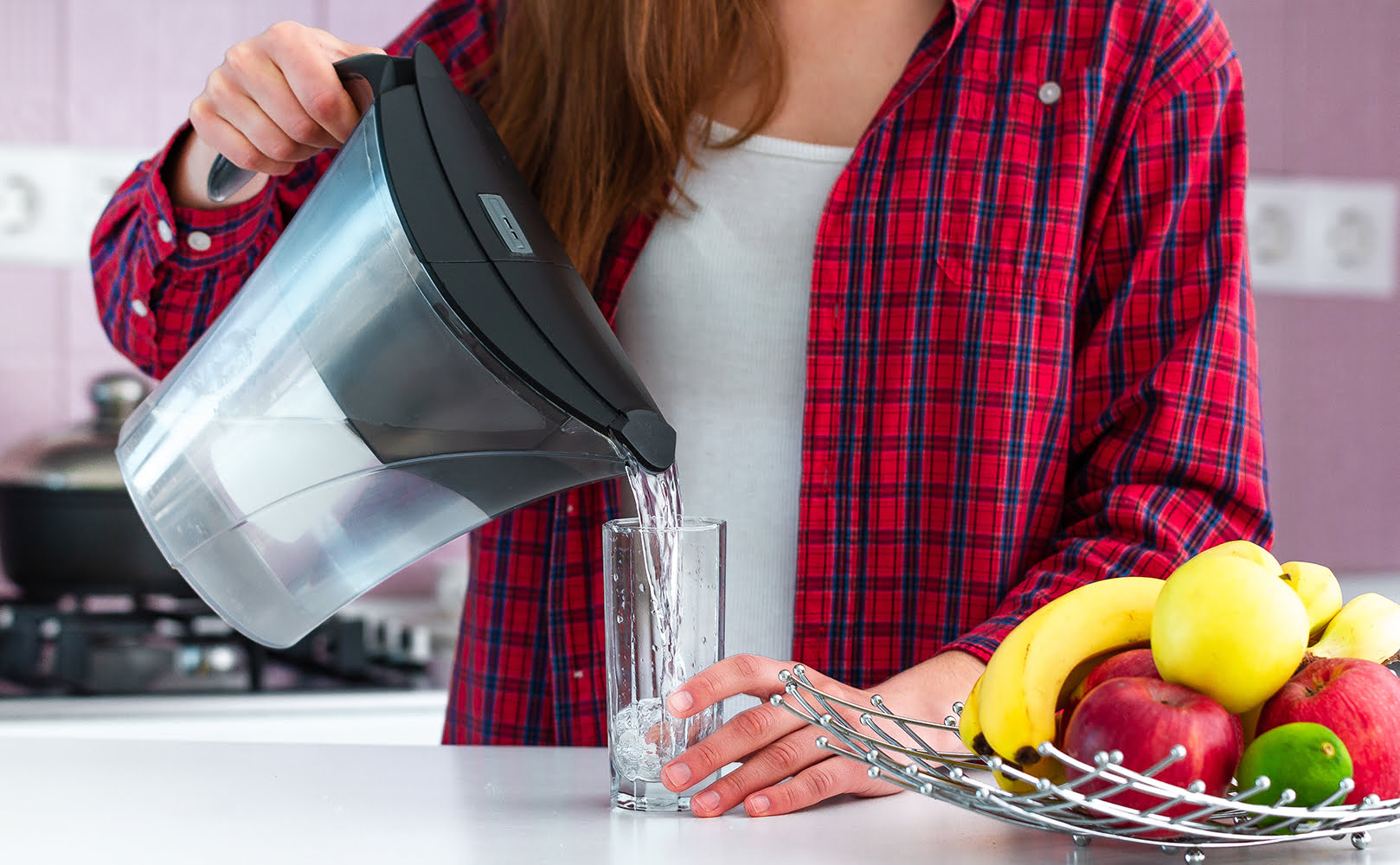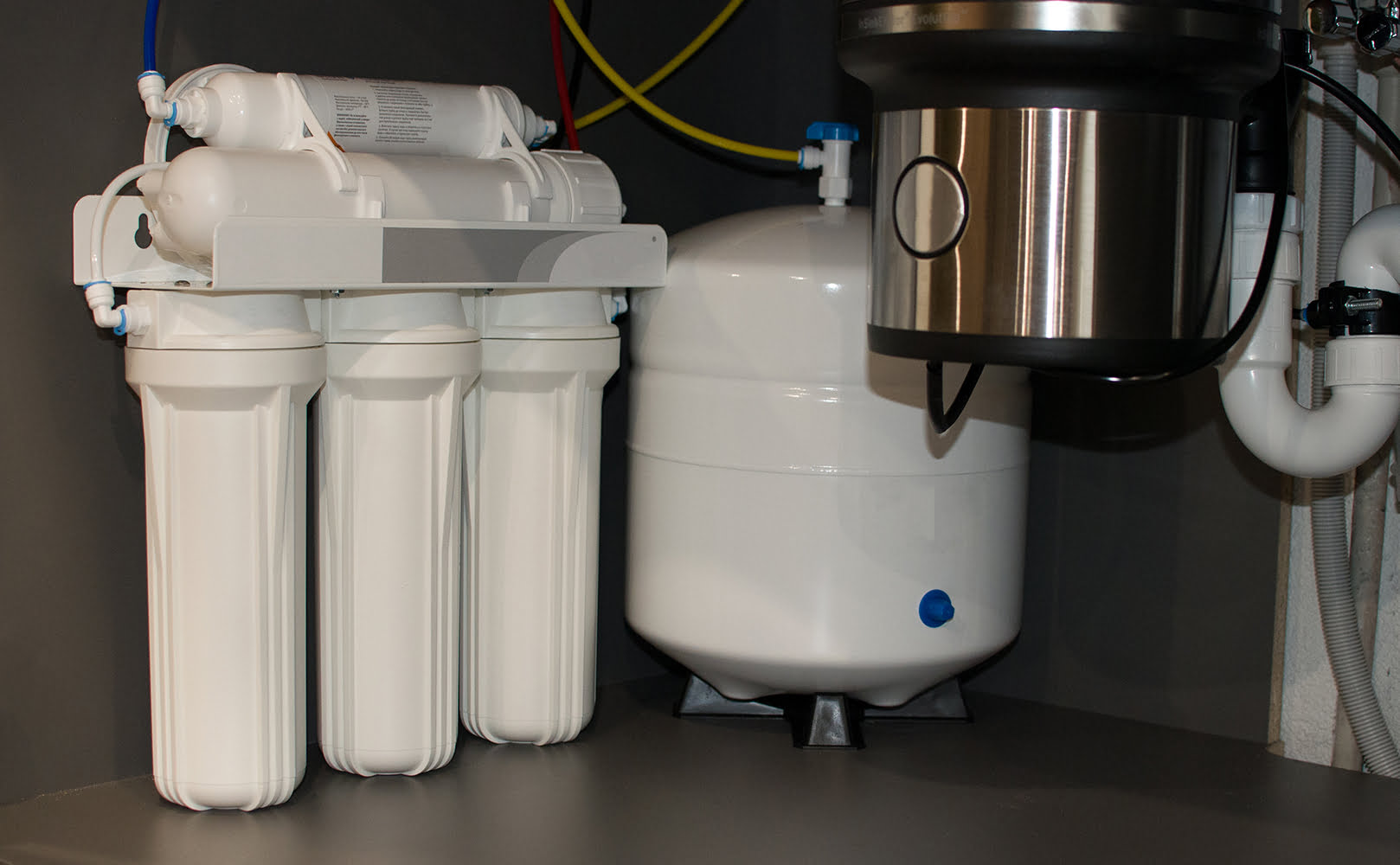Water Filter Pitcher vs. Reverse Osmosis | Ultimate Showdown
Written by: Alexandra Uta // Last Updated: Oct 6, 2022
This page may contain affiliate links. If you buy a product or service through such a link we earn a commission at no extra cost to you. Learn more.
Choosing between a water filter pitcher and a reverse osmosis system is a common issue for many homeowners looking to improve the quality of their drinking water.
Both solutions have their own advantages and disadvantages.
Considering that this is a long-term investment, it’s important to pay as much attention to the market as you can.
So, water filter pitcher vs reverse osmosis system – let’s find out which option is ideal for you!
Key Takeaways
- Have your water tested to know what contaminants you are dealing with. Also, consider your water consumption.
- Generally speaking, water filter pitchers are good for basic filtration needs. But for severely contaminated water, it is often better to go with a reverse osmosis system.
- Water filter pitchers can only provide a very limited amount of filtered water. Reverse osmosis systems require more space (storage tank) but will have a much higher capacity.
- Pitcher filters require more frequent changes.
- Costs: Compared to pitchers, RO systems are more expensive upfront and in the long run.
What Is a Water Filter Pitcher and How Does It Work?
A water filter pitcher is a pitcher that features built-in filtration. They are commonly made of plastic, glass, and in some cases even metal, and are designed to be a portable solution that you can easily carry around the home.
If you live in a larger household, investing in a water filter pitcher may be a more adequate solution than fitting each faucet with a filter or installing whole house water filtration.
Contaminant Removal
Despite their small and portable nature, many water filter pitchers actually do a great job at removing dangerous contaminants from the water. Some models use more than one stage of filtration, although those tend to cost more.
In general, you can expect a water filter pitcher to effectively remove most common contaminants. However, if you’re looking to target specific types, you may need to go with a more advanced solution.
What Is Reverse Osmosis and How Does It Work?
Reverse osmosis is a more complex filtration method that relies on forcefully pushing water through a very fine membrane with pores that are so small that almost only water molecules can pass through. As a result, only pure water makes it through to the other end, leaving any contamination behind.
This method is commonly used in situations where more advanced filtration is required and you don’t want to make any compromises with the quality of your water.
Besides, reverse osmosis systems are comprised of several pre and post-filtration stages for additional contaminant removal.
Contaminant Removal
Speaking of, RO systems are great at removing most types of contaminants from your water supply.
However, they also target many other elements which may not necessarily be harmful. Minerals are a common example. Most household water supplies have a relatively consistent mineral content, which can be beneficial to your health. Using RO means that you’re also removing those minerals from your water.
Comparison: Why Water Filter Pitchers Are Better Than Reverse Osmosis and Vice Versa
If you’re not sure whether a water filter pitcher is a more adequate choice than reverse osmosis for your household, here are some common advantages and disadvantages of both options that you should consider.
Water Filter Pitchers Can Only Provide so Much Water
A water filter pitcher is limited in the amount of water it can dispense. The pitcher can only filter as much water as it can hold, meaning that you will frequently have to refill smaller pitchers. This may not be a problem for individuals, but if you live in a larger household, you may often find your pitcher close to empty – especially if others are not as considerate as you about refilling it after use.
Reverse osmosis systems are not immune to this disadvantage, as they also use a storage tank which can be empty at times. But the capacity you’re dealing with is much higher than with a water filter pitcher.
Pitchers Require More Frequent Filter Changes
Reverse osmosis systems are better in the long run in terms of filter replacement frequency. A single filter can last between 6 to 12 months which is a very long time at least compared to a water filter pitcher, and it can process a much larger volume of water.
Carbon Filtration
Carbon filtration is typically the main – and often only – filtration method found in water filter pitchers. This is okay if you’re only looking for basic filtration, but will become an inadequate solution if you’re interested in removing a wider range of contaminants from your water supply.
Reverse Osmosis Removes More Than Just Contaminants
Reverse osmosis doesn’t just get rid of contaminants. It also removes minerals and other useful elements in your water supply. If you’re used to getting your daily needs met by your drinking water, you might have to compensate for the difference by taking supplements once you’ve switched to reverse osmosis filtration.
Reverse Osmosis Is More Expensive Upfront
A reverse osmosis system typically costs more upfront. This is often offset by its low running costs, as you’ll have to replace its filters far less frequently. But you’ll still have to make a relatively big expense in the beginning, which may not be ideal for some people looking to get access to water filtration on a tight budget.
Reverse Osmosis Wastes Water
An unfortunate side effect of the way reverse osmosis works is that it wastes water. The amount is not negligible either – as a rough estimate, you can expect up to 80% of your water to be wasted when using a traditional reverse osmosis system with no built-in pump.
Which Type Is Right for You?
As you can see, there’s no solution designed to fit everyone’s needs. Choosing the right water filtration system should be done with consideration for your water quality and filtration needs. For some people, a small-sized water filter pitcher will be more than enough. Others might need to look into more advanced solutions like reverse osmosis.
Testing Your Water Quality
If you’re not sure what kinds of contaminants you’re dealing with – and in what amounts – you should get your water tested before committing to a specific purchase. You can send a sample of your drinking water to a laboratory, which will evaluate its contents and tell you all you need to know about the different pollutants it contains and their amounts.
You can also perform a DIY test at home, but those come with some severe drawbacks. Most notably, some only alert you of the presence of certain contaminants, but don’t tell you anything about the exact amounts you’ve got. This can sometimes lead to misleading results.
Last but not least, consider ordering a report of your local water quality if you have access to it. In the US, this is available for free.
Considering Your Needs and Preferences
You must also keep your individual needs and preferences in mind when making this kind of purchase. Here are some questions to get you oriented.
- How many people live in your home?
- How much water do you drink on an average day?
- What kinds of contaminants do you need to remove?
- Are you okay with only filtering your drinking water (and not the water you shower and cook with)?
- Do you live with small children or elderly people who might find it difficult to handle a water filter pitcher?
If you have any thoughts about reverse osmosis systems vs water filter pitchers please don’t hesitate to leave a comment below!
Information provided on BOS is for educational purposes only. The products and services we review may not be right for your individual circumstances.
We adhere to strict editorial guidelines. Rest assured, the opinions expressed have not been provided, reviewed, or otherwise endorsed by our partners – they are unbiased, independent, and the author’s alone. Our licensed experts fact-check all content for accuracy. It is accurate as of the date posted and to the best of our knowledge.



